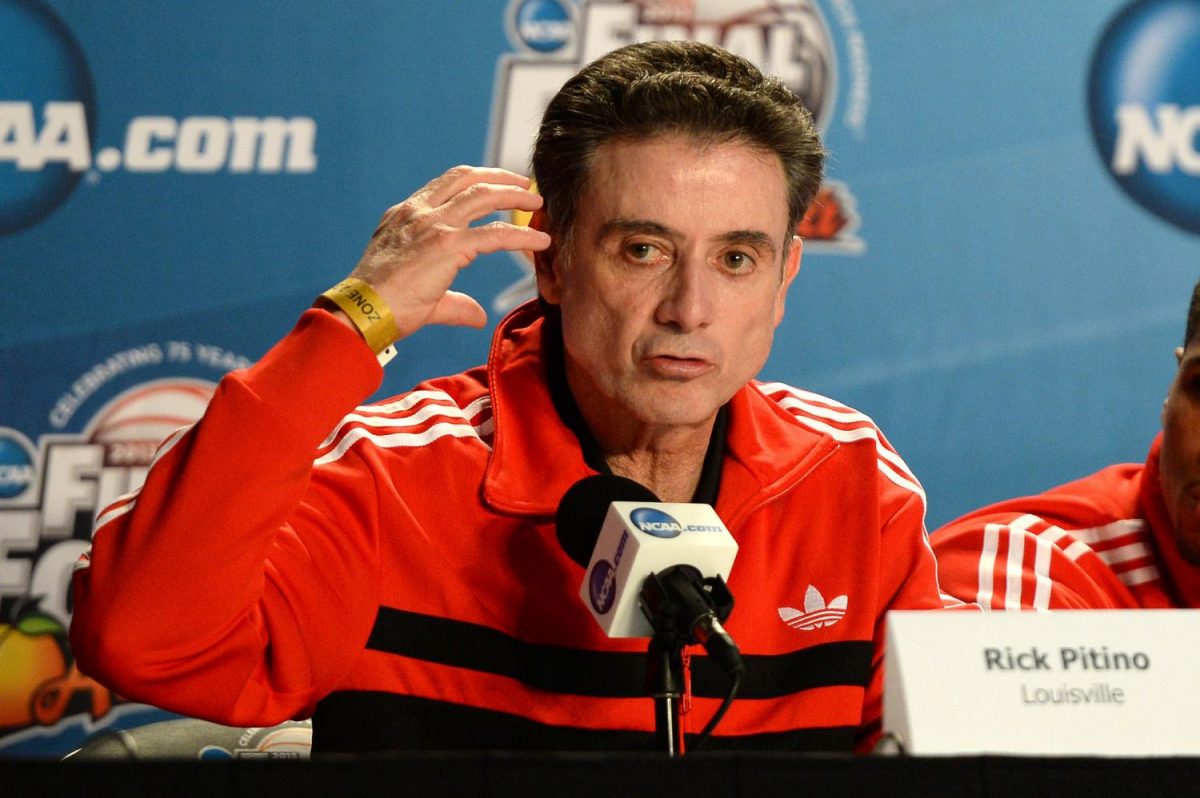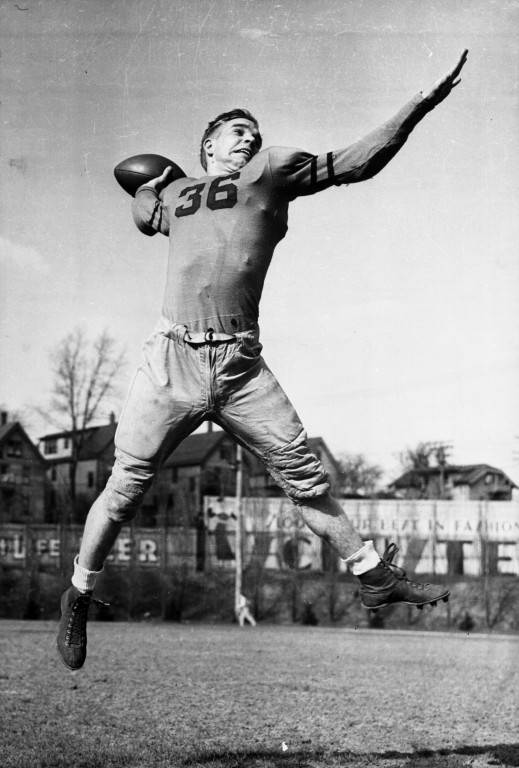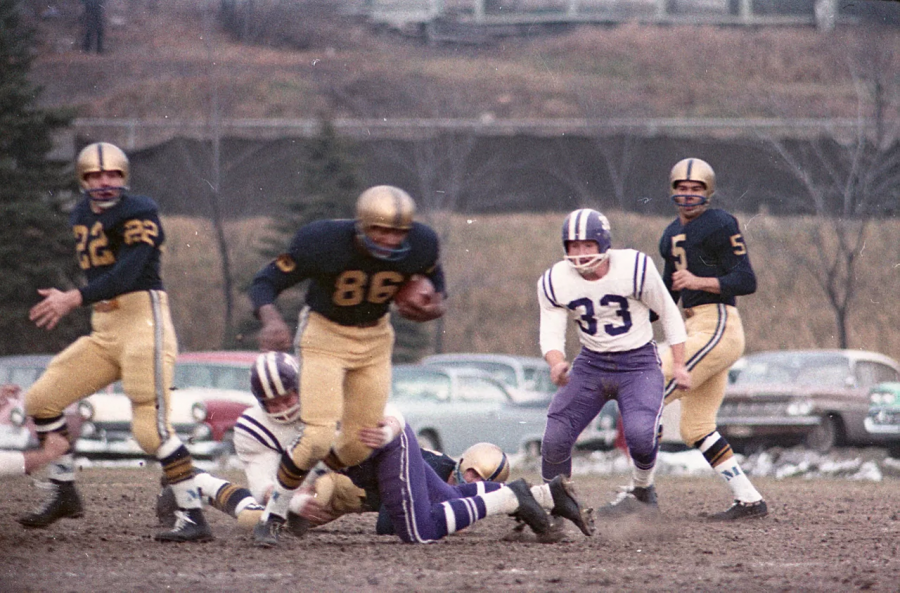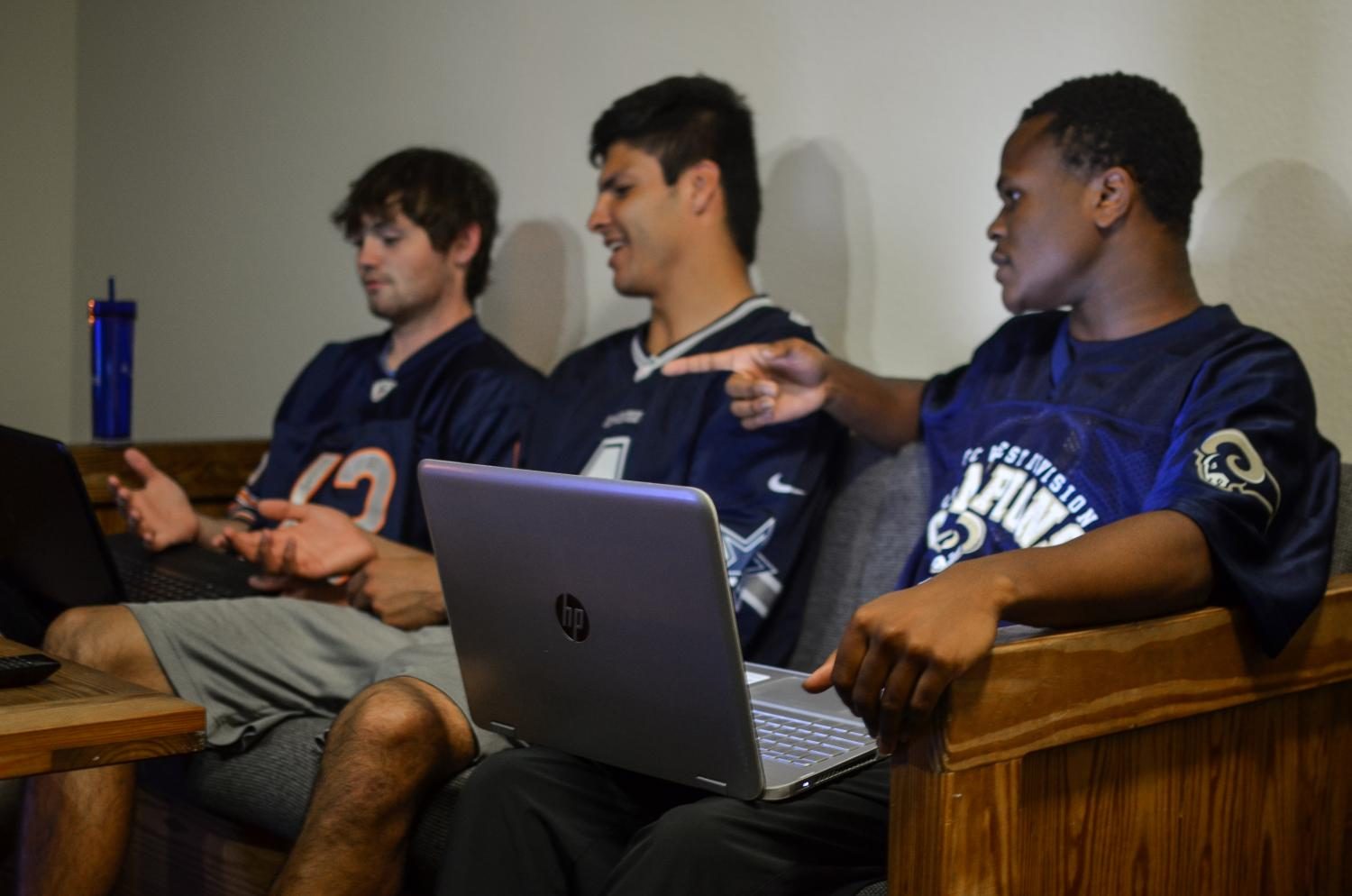George L. Cross was a man ahead of his time.
Sometime in the early 1950s, Cross, the president of the University of Oklahoma, went before the state appropriations committee to ask for an increase in the school’s budget. After an hour-long presentation lacking any sympathetic ears, Cross found the sole argument that moved the committee: “We want to build a university our football team can be proud of.”
It was intended as a sarcastic quip, but Cross understood the pervasiveness of that thinking better than anyone and certainly better than the myriad people who adopted the position sans irony. Were he alive over 60 years later to see the FBI shine a light on high-major recruiting still remaining a den of bribery and money laundering, Cross might not know whether to laugh or cry.
The scandal can essentially be viewed as a triangular exchange between a player, an authority figure and an outside source. Money flows from an outside source to the authority figure, who then influences a player to do something that adds money or visibility to the outside source. That outside source could be an apparel company, a financial advisor, a clothing outlet or anything else that would benefit from the soon-to-be famous athlete’s patronage. Sew together enough of these triangles, and there’s an entire dark market propping up sections of high-level recruiting.
This market’s existence is not news to anyone who pays even a little bit of attention to collegiate athletics. Southern Methodist University received the harshest penalty in NCAA history – the temporary suspension of its football program – for doing pretty much exactly this 30 years ago. University of Miami booster Nevin Shapiro ran a similar access scheme for years with the Hurricanes’ football team. Over half of all members in the vaunted “Power Five” conferences have been dinged for a major NCAA rules violation in the last decade.
These dealings take place under the table, of course, because the NCAA insists on keeping them there. Amateurism prevents players from receiving any of the millions their athletic talents create. The NCAA even ruled a football player ineligible to compete for making money off of his own YouTube channel. Meanwhile, many conferences are signing nine- and 10-figure television contracts, not a dime of which will directly go to players.
Obvious ethical quandaries aside, amateurism creates prime conditions for well-compensated figures to bribe talented athletes, many of whom come from disadvantaged backgrounds. Instead of empowering student-athletes, the NCAA has instead positioned them as pawns for industry power brokers, wholly accountable to a system protecting the benefactors of their free labor.
Of all the things that can be said about this case – important, destabilizing, massive in scope – the one oft-used word that ought to be avoided is “scandal.” That word implies two things that are evidently untrue: one, that nobody knew this was happening and two, that there’s anything necessarily wrong with it.
If the NCAA allowed players to do everything professional athletes did, would there be anything wrong with a player signing a contract and accepting money for his/her services? That’s what any non-athlete in a position to generate revenue can do. If someone convinced an athlete to sign an endorsement deal with a sneaker company, is that a bad thing? Nobody seemed to mind when Bucks player Giannis Antetokounmpo, who is hardly older than a college senior, received pitches for his own signature shoe line from Adidas last week.
People seem to have a harder time reckoning with this because the line between morality and legality is tricky to distinguish. Exchanging money for influence or favors definitely breaks a lot of NCAA and governmental rules. Plus, terms like “bribery” and “corruption” are attached to this story, so it feels like it has to be something immoral.
Taken in a vacuum, the act of paying athletes for their services isn’t considered over the line, nor should it be. And while it’s reassuring to see the FBI punishing the exploiters of the power imbalance rather than the exploited, there’s no reason why the system necessitating FBI intervention has to stay, save for the NCAA’s greed.
The people who want to build a football or basketball team instead of a university have won. They won a long time ago. George L. Cross never stood a chance once the television money spigot got turned on. Pretending otherwise, that college athletics ought to remain loyal to some outdated notion of purity, further abets those who peddle influence for money.





